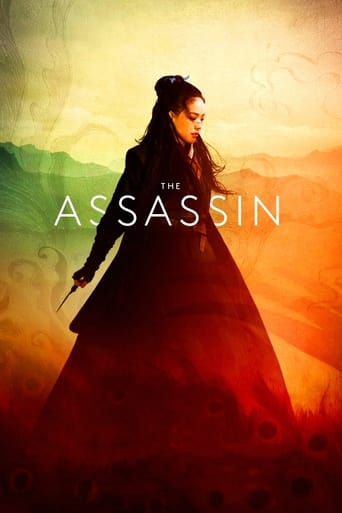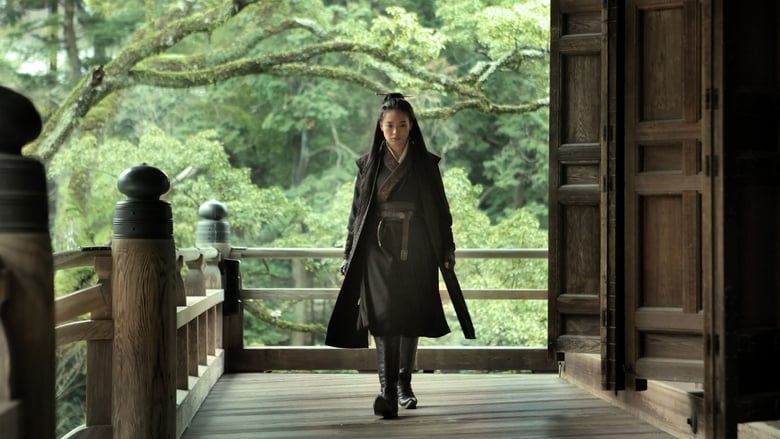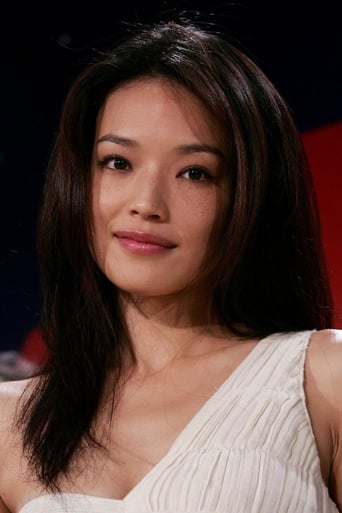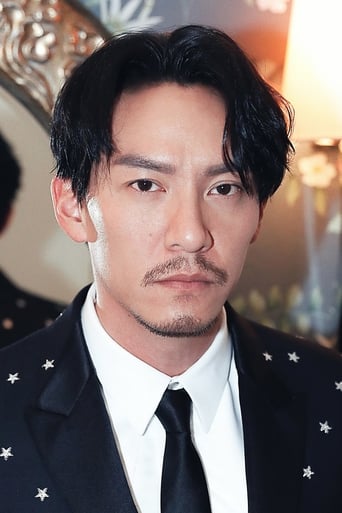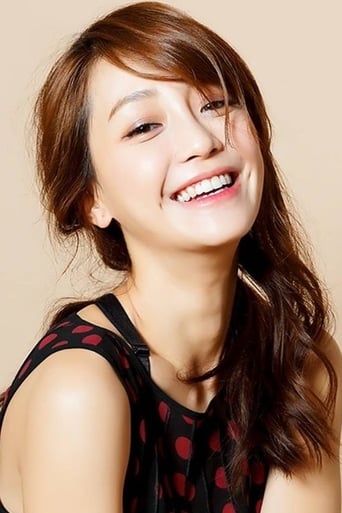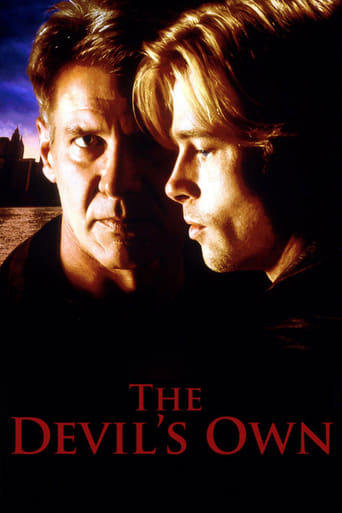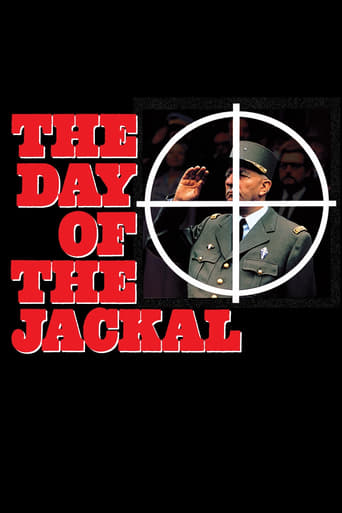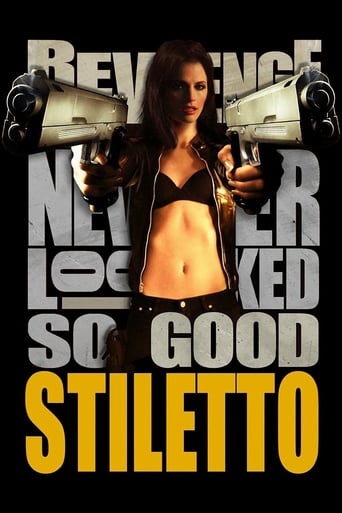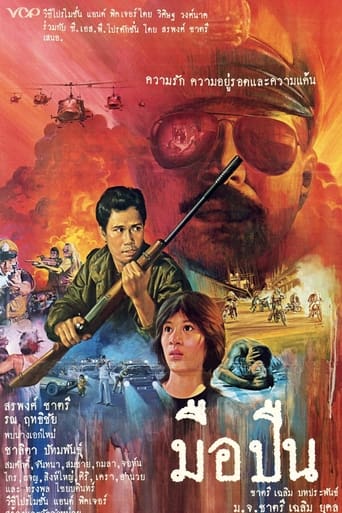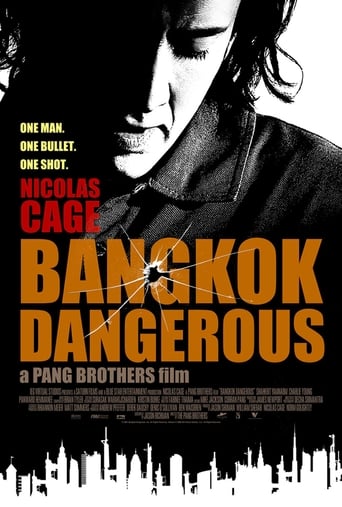The Assassin (2015)
9th century China. 10-year-old general’s daughter Nie Yinniang is abducted by a nun who initiates her into the martial arts, transforming her into an exceptional assassin charged with eliminating cruel and corrupt local governors. One day, having failed in a task, she is sent back by her mistress to the land of her birth, with orders to kill the man to whom she was promised – a cousin who now leads the largest military region in North China. After 13 years of exile, the young woman must confront her parents, her memories and her long-repressed feelings.
Watch Trailer
Cast
Similar titles
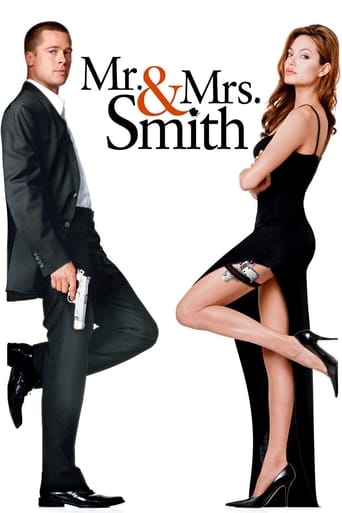
Reviews
It's hard to see any effort in the film. There's no comedy to speak of, no real drama and, worst of all.
It is not deep, but it is fun to watch. It does have a bit more of an edge to it than other similar films.
Good films always raise compelling questions, whether the format is fiction or documentary fact.
The thing I enjoyed most about the film is the fact that it doesn't shy away from being a super-sized-cliche;
"The Assassin" is much better than most of the cliché, mindless, action movies produced in China. Of course, there are great films made in China such as John Woo's "Hard Boiled", "The Killer", and "Red Cliff Pt. 1 and 2", and Wong Kar Wai's "The Grandmaster"; these are just a few.One way that it stands out greatly is the cinematography. Every scene from start to finish is a visual ecstasy that enchants the audience, making them anxiously wait for a new surprisingly beautiful shot. The contrast is sharp but not in the repelling way a YouTube amateur action film is; it captures the light and dark perfectly. Hsiao-Hsen Hou shows her proficiency in contrast from the very beginning which is in black and white. The light and dark were balanced and gave depth to the scene. When the movie was displayed in full color, I was blown away. She adhered to the color wheel to combine opposing colors in the frame, adding color to the contoured contrast and creating a beautiful shot.The composition of the shots were also great. Hou used the set design and camera positioning to lead the audience's eye to the subject. I also appreciated the masterful long takes. A big problem with most movies is they cut too soon. A movie doesn't have to be like "Russian Ark" where the entire film is one take. If the camera stays where it is long enough, the audience will be able to find meaning from what the characters are feeling and what their surrounding environment is like; if that perspective changes, we start all over.This ties in with some complaints that "The Assassin" moves too slowly. There were times that I got tired, but I realized that maybe there's more to this scene where not a single character talks. Maybe if I observe the characters and environment carefully, I can get my own meaning out of it.The acting was great, and the characters were easy to understand even when they weren't speaking to each other. Also the set design was superb. All shots were realistic and on-site, the natural landscapes and man-made structures were magnificent, and it really immersed me into the film."The Assassin"'s writing is unconventional but well done, where much of the communication is through reading emotions. The characters don't say what they mean a lot of the time, but they communicate the truth from their unrelenting emotions caused by trying to deal with moral conflicts and dilemmas that they can't show to society. Many conflicts don't get resolved, characters are bound by societal demands, and the pain stays. One critique I can think of for this film is parts of the score. There was a fight scene that had a soundtrack that I thought was ill-fitting. It's probably because its composition was too complex for the time period and was paired with indigenous instruments meant for a simplistic, East Asian pace of music. This is only a minor concern and I didn't subtract an entire star just for this criticism.Overall it was a great movie: unconventional, experimental, beautiful, and emotionally realistic; "The Assassin" definitely stands out from others in the East Asian cinema, in the best way.
Directed by the Taiwanese Hou Hsiao-hsien and adapted from a ninth-century Tang Dynasty tale, this film stars Shu Qi as the eponymous, black-cloaked killer Nie Yinniang. Visually the work is sumptuous and stunning with glorious scenery, atmospheric sets, and lingering shots through mist or gauze. However, the plot is minimal, the narrative opaque, and the action sequences all too brief. In an interview with the "Guardian" newspaper, the director insisted: "I don't make films to communicate with an audience. I am the only person who I am speaking to." This indulgent style has won over most critics but is hard on the average viewer.
One of my pet peeves in cinema is when a director makes a film in a genre they're not interested in. It happened with Marc Foster when he made QUANTUM OF SOLACE and look how that film ended up. The same happens with THE ASSASSIN, a gorgeously shot period martial arts movie from Taiwan, which is directed by art-house film-maker Hsiao-Hsien Hou, a man who has said he doesn't like lengthy martial arts scenes. In THE ASSASSIN, you find out what a martial arts movie looks like when it has very little action in it.The result? It's a pretentious bore of a film. Oh yes, I know it looks wonderful. I wish Hou had shot in widescreen like every other director, as to say fullscreen looks better is just nonsense - and smacks of pretentiousness again. The countryside setting is vibrant and I did really enjoy the fight scenes when they do occur. They're over very fast, like in an old samurai movie, and they have a snappiness and aggression that the more elaborate wuxia movies lack. What a pity, then, that the rest of the film outside of the fights is so dull and lacking in basic film-making abilities. There's no characterisation outside of Shu Qi's lead, and the back story is needlessly complex as it jumps through time and fails to adequate introduce supporting players. The result is that THE ASSASSIN is a fine-looking but ultimately hollow viewing experience.
The filmmaking style of the Taiwanese director Hou Hsiao-Hsien is amazing. Here is a film sold worldwide as a martial-arts film but made with incredible restraint from its performers and a delightfully managed soundtrack that raises its level to a sophisticated work of cinema that well-deserved its Best Director Award at Cannes.The film's cinematography is a delight. The sequence where the assassin meets the Governor of Weibo is remarkable with the sheer curtains camouflaging the assassin. Elsewhere, the film's cinematography is aided by superb choices of external locations carefully chosen in mainland China.The next highlight of the film are performances of two supporting actresses Zhou Yun (as the Governor's wife) and Fang-Yi Sheu (in the double role as Princess Jiacheng and her twin sister the nun). They are adorable in this movie as they have to convey feelings with extreme subtlety. Ms Fang-Yi Sheu's choreography seemed too western and reminiscent of the Martha Graham school, of which the actress I found is indeed a product. The dance I found was close to modern dance mixed with Sufi music. Probably, I am too picky.The music and soundtrack are equally delightful as the performances. The management of the soundtrack from silence to light footsteps to a few plucked string notes of a zither to full blown music at the end of the film present a rainbow of musical/aural pleasures for a keen viewer of cinema. However, the final musical piece during the end credits, was possibly less Oriental and more European to my ears. It almost sounded like bagpipes were playing in China.All in all, the film was a delight. A major film of 2015 that I saw in 2016. This film was superior to "Dheepan", which ultimately won the top prize at Cannes.
